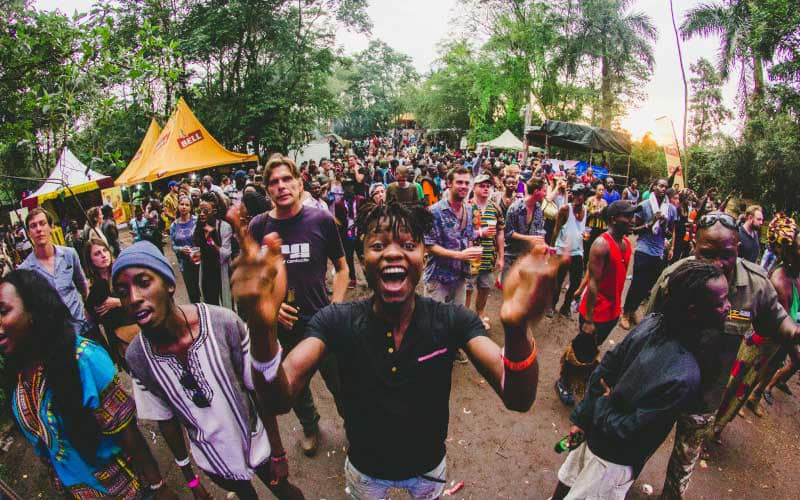By Denis Jjuuko
For many years, Jinja had lost its status as the industrial hub of Uganda when many factories closed following their privatization to private entities. The private investors preferred setting up in Kampala near to the market or executives didn’t want to abandon their Muyenga mansions for life on Kiira Road on the banks of River Nile.
Jinja, with its wide streets, became somewhat sleepy, eventually known for making chapattis! But the picturesque location that is Jinja was always going to be key for its revival. Residential houses where once factory executives resided became bed and breakfast lodges. And tourism players started building hotels and lodges on cliffs where people could see the majestic Nile flowing towards the Mediterranean. Sports such as kayaking and bungee jumping were introduced. Someone brought in quad bikes and horse riding.
Soon, Jinja became a preferred destination for tourists, honeymooners and those seeking a nook to break away from the hustle and bustle of Kampala. Many young people spend their weekends in Jinja. Located a mere 80km away from Kampala, the town is a cheaper option for those seeking gateways. Transport fares are reasonable and accommodation is affordable and there are lots of stuff to see and enjoy on budget.
Eventually, factories returned to Jinja and many are being set up increasing the number of people in town. But also, Jinja still has big open spaces where big events can be staged. The agricultural show is a parmanent fixture on the town’s calendar and of recently, the famous Nyege Nyege that took place over the last weekend.
There is no event that divides opinion like Nyege Nyege in Uganda. It has been debated in parliament and at one stage, MPs wanted to ban it even though people questioned if they had the legal mandate to do so. The ethics ministry termed it an immoral event. Busoga political stalwart Rebecca Kadaga showed up to preside over its opening ceremony, like she did again this year.
Pictures and videos will emerge of a few people who have drunk a little too much or who are dancing seductively or dressed in clothes the size of handkerchiefs. Those against the four-day music festival will use such images to justify their opposition to the event as one that is leading to the erosion of the country’s moral compass.
Regardless, young people arrive in Jinja in droves to enjoy the event. Many fly in from overseas and turn the town upside down for four days to the chagrin of the country’s morality police.
Wherever people converge in large numbers, some may do certain things that many won’t approve of. People ‘misbehave’ at workplaces or even worship ‘crusades.’ There is no way, a few people wouldn’t let their passion take over during a musical festival.
Anyway, it is during this event that Jinja experiences some bit of traffic gridlock and have the many lodges filled up. Some people turn their homes into temporary hotels while those in the camping tent business make a killing. Boda boda riders, chapatti makers and all sorts of small businesses make lots of money during this festival. Jinja local government authorities and the Uganda Revenue Authority must be smiling all the way to the bank. Banks themselves are smiling as well.
However, if you are a local government in one of the major towns or cities as some are called, you should have taken keen interest in Nyege Nyege. Local governments need to promote their towns so that businesses can blossom which in turn will mean increased revenues.
They don’t necessarily have to do music festivals. Masaka, for example, could do more about grasshoppers during the two seasons a year (hopefully they return). They can promote the season and open up collection or gathering centres where at night, people can get involved. They can make the exercise a fun event for four days each season.
Uganda is food rich. Another town can do a food festival. Actually, that can be done in each region of the country given our peculiarities when it comes to culinary stuff as long as we portray it as fun event. Packwach’s Nang Nang fish is delicious just like the cassava in Kafu. Malewa in Mbale. Malakwang in Gulu. Firinda in Tooro and potatoes (chips festival?) and Enturire in Kabale.
What about games? Wrestling (ekigwo), board games (mweso, dduulu), okwepena (what is it in English?), skipping the rope, and blend it with modern ones people have come up with these days like Otyo and a town’s fortunes may change forever. Towns like Arua have golf courses.
They also don’t have to be events held once a year. Local governments with support from their mother ministry or that of tourism or the Uganda Investment Authority may help towns identify their niche attractions and work on a plan to promote them.
The writer is a communication and visibility consultant. djjuuko@gmail.com

